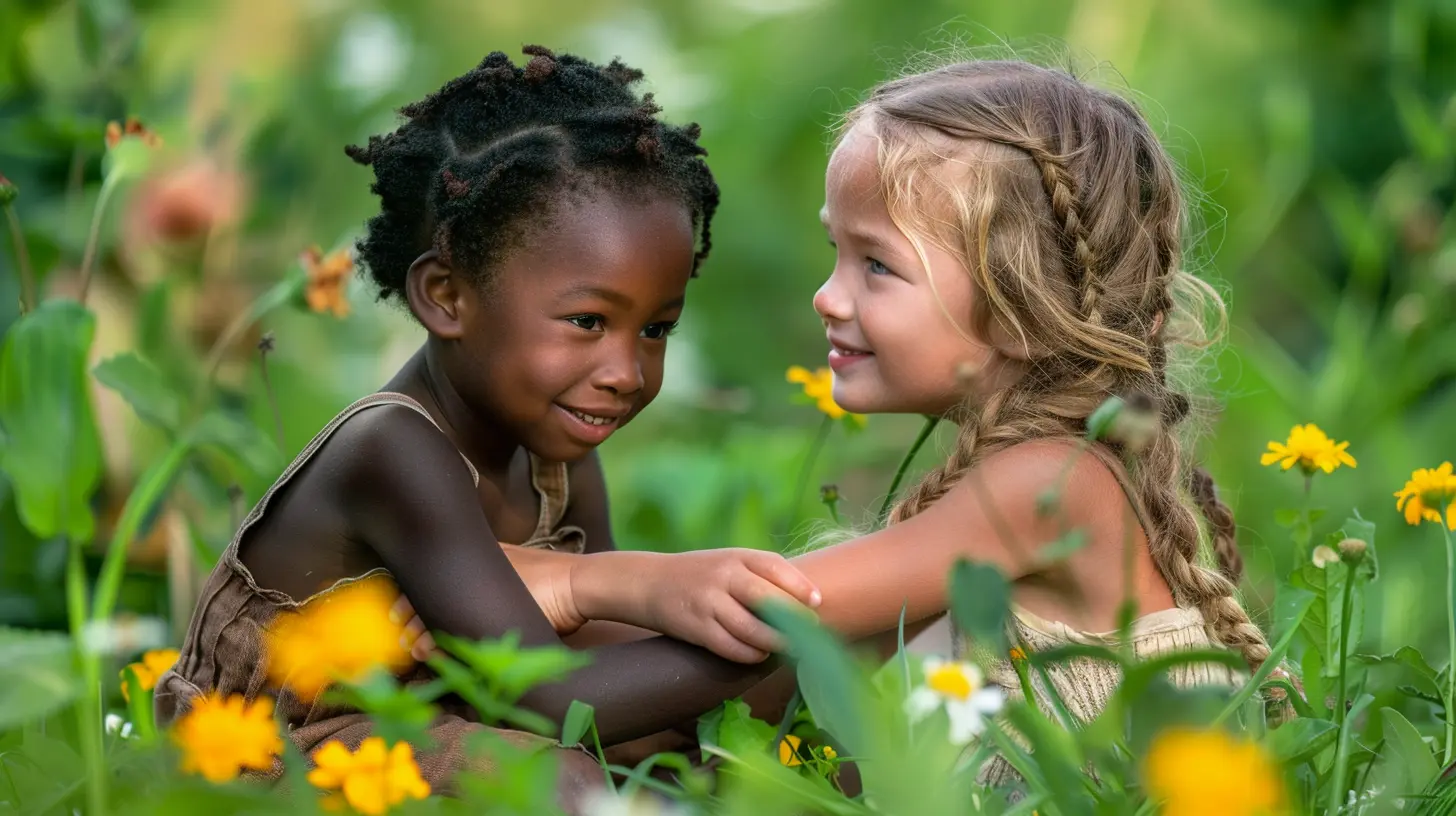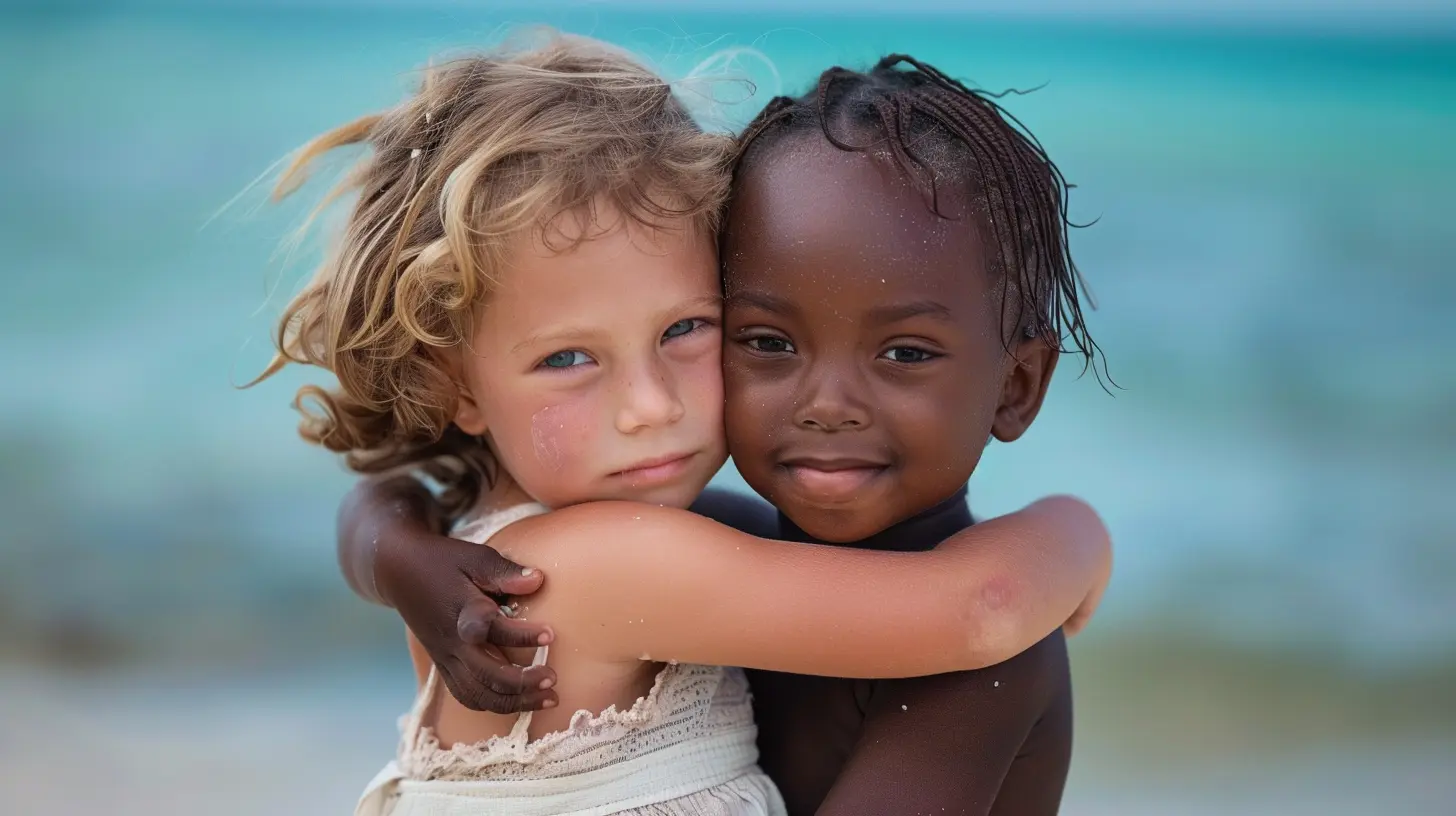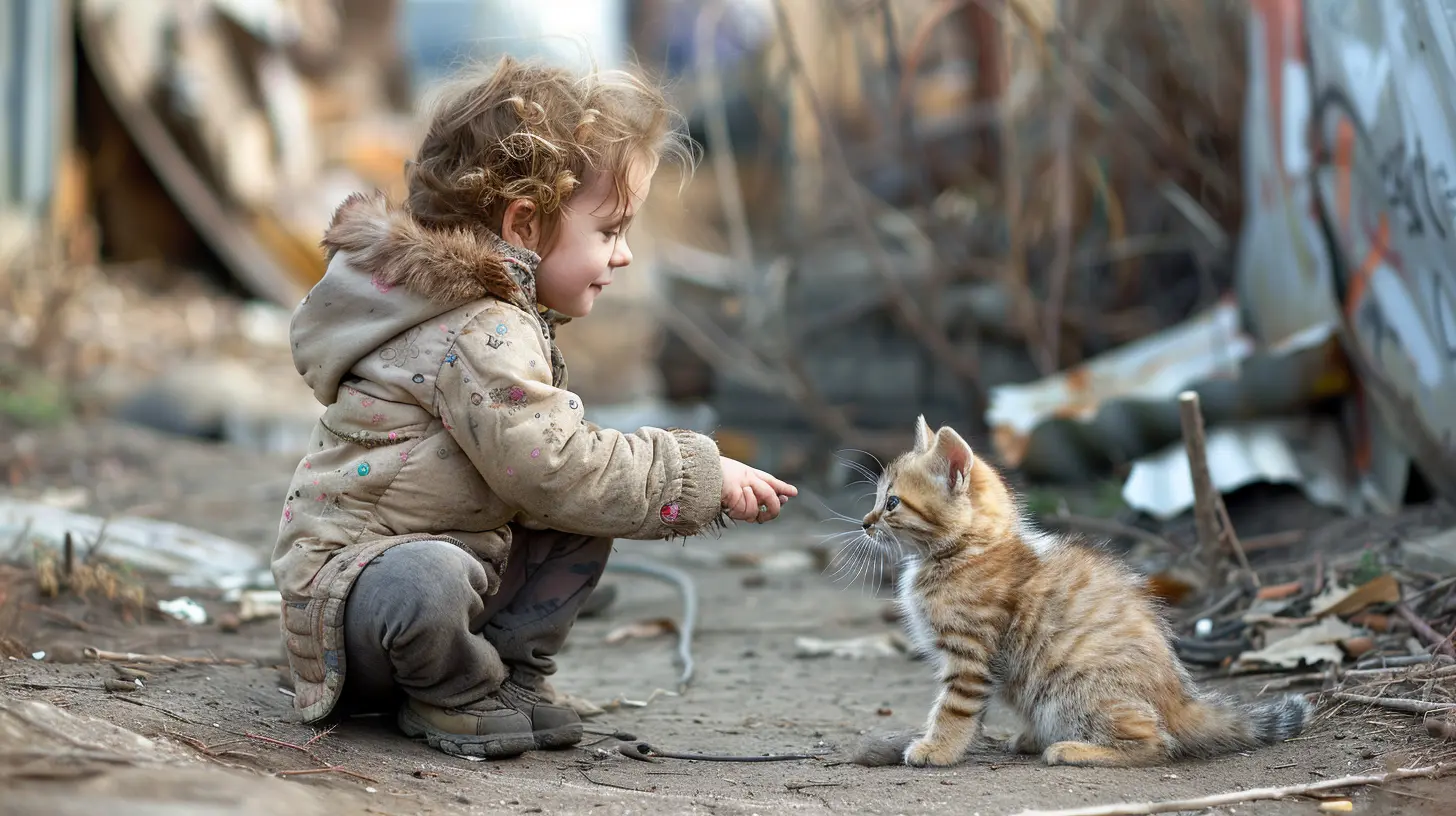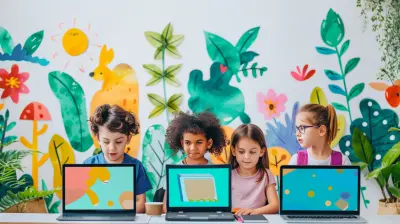Fostering Kindness and Empathy in an Uncertain World
28 June 2025
Let’s not sugarcoat it—raising kind, empathetic kids in today’s world feels like trying to teach a goldfish to do long division. It's tough. Social media noise, global crises, schoolyard pressure, and the ever-present hustle culture all pile on. It’s no wonder parents are feeling the pinch.
But here’s the secret—that challenge? It’s also a HUGE opportunity. We’re not just raising kids; we’re shaping the next batch of adults who can either tear the world down brick by brick or take the mess we’ve made and build something better.
So, what’s the real talk on teaching kids to lead with kindness and empathy? Buckle up. This isn’t a fluffy blog post full of sunshine and unicorn stickers. This is a raw, real guide to raising humans with heart—because the world doesn’t just need smarter kids. It needs kinder ones.
Why Kindness and Empathy Matter Now More Than Ever
We live in a world that keeps changing faster than your kid’s YouTube recommendations. And with that whirlwind comes anxiety, confusion, and (let’s face it) a growing sense of “every person for themselves.”But humans weren’t meant to operate like that. Our superpower isn’t strength or speed—it’s connection.
Kindness is more than saying “please” and “thank you.” It’s action. It’s showing up when it matters.
Empathy is more than “putting yourself in someone else’s shoes.” It’s feeling what they feel and caring enough to do something about it.
Without these two things? Society crumbles. Relationships fall apart. Mental health tanks. But when we teach our kids to value kindness and empathy, we arm them with tools to be resilient, compassionate, and damn near unstoppable.
The Big Myth: “Kids Will Just Pick It Up Naturally”
Let’s bust this one wide open—kindness and empathy are NOT something your kids just “soak up” like sponges. Sure, they’re born with potential for compassion, but if you’re not actively modeling and teaching it? That potential shrivels. Fast.And no, don’t rely on schools to do it all. Teachers are amazing, but they’re juggling curriculum standards, behavior issues, and budget cuts. Teaching empathy isn’t a bullet point on a PowerPoint slide. It’s a lifestyle.
So if you’re waiting around for your kid to magically grow into a kind soul just by watching Daniel Tiger or listening to bedtime stories about sharing—you’re setting yourself up for disappointment.
Start at Home: Be the Kindness You Want to See
Okay, here’s the uncomfortable truth: Kids don’t do what we say. They do what we do. Always.So, if we’re barking at customer service reps, gossiping about neighbors, flipping off drivers, and talking trash about people online—our kids are absorbing every bit of it.
Let’s clean our own mirrors before pointing fingers.
- Say sorry when you mess up. Yep, even to your kid. Especially to your kid.
- Model emotional regulation. If you lose your cool every time life doesn’t go your way, guess what? So will they.
- Praise effort over outcome. When they do something kind, don’t just say “good job.” Say, “That was really thoughtful. I noticed you made that person feel better. That matters.”
Your vibe becomes their blueprint.
Make Kindness a Daily Habit, Not a Random Act
Random acts of kindness? Cute. But consistency is what builds character.We’re talking about making kindness a habit, like brushing teeth or putting on socks (but with way better long-term returns).
Here’s how:
1. Create a Family Ritual of Gratitude
Choose a time—dinner, bedtime, car ride—and have everyone share one kind thing they did or observed that day. It rewires our brains to look for goodness.2. Assign a Weekly 'Kindness Mission'
Leave a thank-you note for the mail carrier. Donate a toy. Compliment three people. Make it fun. Make it intentional. Let your kid suggest ideas, too.3. Turn Chores into Acts of Empathy
Instead of “Clean your room,” try “Let’s get your room in order so it feels like a safe space for you.” Or “We’re washing dishes so the kitchen is welcoming for everyone.” It’s not manipulation—it’s framing.Help Kids Handle Big Feelings (Without Losing Their Minds)
Empathy begins where emotional intelligence lives. If a child can’t name or navigate their own feelings, how on earth can they understand someone else’s?Teach them the language of emotions. Not just the big four (happy, sad, angry, scared), but the nuanced stuff like disappointed, frustrated, embarrassed, jealous. Emotions are like colors—knowing the full palette lets you paint with more depth.
Here's How:
- Name it when you see it. “I noticed you looked frustrated when your brother took your toy. Do you want to tell me more?”- Validate, don't fix. Stop swooping in with solutions all the time. Just say, “That sounds really hard. I get why you feel that way.”
- Practice empathy through storytelling. Read books together and pause to ask, “How do you think she felt in that moment?” or “What would you do if that happened to you?”
Teaching kids how to sit with their feelings is step one. Helping them recognize and respond to others’ is step two.
Call Out Cruelty—Even the "Small" Stuff
Not all unkindness screams in your face. Sometimes it whispers in snarky jokes, eye-rolls, exclusion, or “just kidding” insults. These micro-moments matter.Your kid makes a rude comment? Don’t laugh it off. Ask where it’s coming from. Explain how words land. If they heard it from a friend, talk about peer pressure and how being kind doesn’t mean being a doormat.
More importantly? Teach them how to call out cruelty in others—especially in groups. That takes GUTS.
Try role-playing situations:
- What do you do if your friends are teasing someone?
- How do you respond when someone makes a racist or sexist joke?
- What can you say to support someone who’s being left out?
Equip them with words like “That’s not okay,” or “Let’s not do that,” or even just, “Hey, are you alright?” Those small interruptions can be powerful.
Digital Kindness Is Real Kindness
Here’s the harsh reality: Screens aren’t going anywhere, and neither is digital drama.So if we’re not teaching our kids how to be kind online, that’s a dangerous blind spot.
Talk openly about:
- Cyberbullying – Not just the obvious kind, but the subtle stuff like excluding someone from group chats or ghosting.
- DMs and comments – Remind them: if you wouldn’t say it to someone’s face, don’t say it behind a screen.
- Porn culture and online toxicity – These influence how kids see relationships, gender roles, and consent. You need to be the voice that cuts through the noise.
Let them know: Even behind a username and a screen, there’s always a person on the other side. And that person deserves decency.
Embrace Diversity: Open Your Child’s Worldview
Empathy isn’t just about feelings. It’s about perspective—and that means helping your kid understand people with entirely different experiences.Expose them to different cultures, stories, religions, abilities, and identities. Not in a token way—but with real respect and curiosity.
- Watch shows with diverse leads.
- Attend community events or festivals.
- Read books from voices that don’t look or live like yours.
If kids grow up in a bubble, they’re more likely to judge others. But when they see variety as normal, empathy becomes second nature.
Listen More Than You Lecture
It’s tempting to go Full TED Talk when your kid messes up or asks a big question. But sometimes the most powerful teaching tool is two ears and a closed mouth.Listen to what they’re saying—and what they’re not.
Ask open-ended questions:
- “What made you feel that way?”
- “What do you think she was going through?”
- “What would you do differently next time?”
Kids have deep wells of insight. But they need space—and safety—to dive into them.
When You Mess Up, Own It—Out Loud
Look, parenting is messy. You will yell. You will judge. You will make snap decisions. You will say things you regret.But here’s what separates good parents from great ones: accountability.
When you lose your temper or act in a way that doesn’t reflect your values, say it. “I messed up. That wasn’t kind. I’m sorry. I want to do better.”
This teaches your child that empathy includes making space for imperfection—and that it’s okay to try again.
Final Thought: You’re Not Raising a Hero—You’re Raising a Human
We all want our kids to be the ones who sit with the lonely kid at lunch, stand up to bullies, and bring their teacher a coffee when they know it’s been a rough day.But if you're constantly pushing perfection, you're missing the point.
Empathy and kindness aren’t about being the best kid in the room. They’re about showing up—flawed, learning, trying, and loving anyway.
So don’t strive to raise superhumans. Strive to raise whole humans. Ones who care. Ones who cry. Ones who reach out even when it’s hard.
That’s the kind of kid who changes the world.
all images in this post were generated using AI tools
Category:
Child DevelopmentAuthor:

Kelly Snow
Discussion
rate this article
2 comments
James Dodson
This article provides invaluable insights on nurturing kindness and empathy in our children amidst today's challenges. Focusing on open communication and modeling compassionate behavior can create a supportive environment. Small, everyday acts of kindness can have a profound impact—let's encourage our little ones to make a difference!
November 13, 2025 at 4:31 AM

Kelly Snow
Thank you for your thoughtful comment! I'm glad you found the insights valuable. Encouraging kindness and open communication is essential in today's world.
Zachary Gomez
In a world brimming with uncertainty, teaching our kids kindness and empathy isn’t just an option; it’s a necessity. Let’s equip them to be beacons of compassion, lighting the way for others.
July 3, 2025 at 4:01 AM

Kelly Snow
Absolutely! Instilling kindness and empathy in our children is essential for fostering a compassionate future, especially in these uncertain times.


